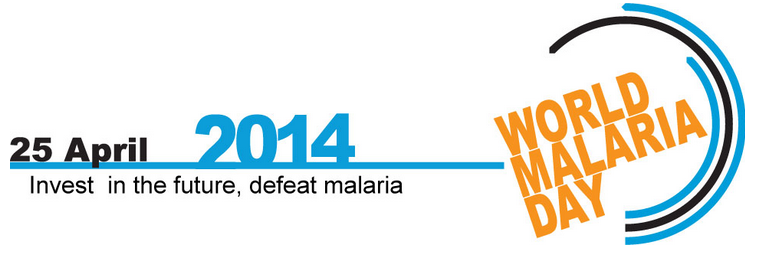[DSW, 25 April 2014] DSW (Deutsche Stiftung Weltbevoelkerung) is an international development and advocacy organisation. 25 April was World Malaria Day. Here is an article published on DSW blog.
World Malaria Day 2014 – The time for accelerating investment is now
Marking World Malaria Day today, Caroline Kent, Director of Partnerships and Communications at DSW (Deutsche Stiftung Weltbevoelkerung), reflects on what needs to be done to eradicate malaria once and for all.
Today we celebrate World Malaria Day. It is a day to reflect upon the impact the disease continues to have on sufferers, and for looking forward to the challenges that still need to be overcome if we are to conquer the disease.
The international community is close to reaching a tipping point in the fight against malaria; thanks to advances in prevention, diagnosis and treatment in the last two decades, malaria death rates have halved and the lives of more than 3.3 million children have been saved since 2000. The theme of World Malaria Day this year – “invest in the future” – encapsulates what needs to be done in order to lock in these achievements and accelerate the fight against malaria. 2014 will be a crucial year for securing investment and international political commitment for this fight.
Despite the progress in tackling the effects of malaria in recent years, the impact the disease has on people living in low- and middle-income countries is huge. Each year 600,000 people die from what is a preventable and treatable disease. Each year there are over 200 million new cases of malaria across 97 countries.
Need for action today
Malaria has a particularly serious impact on the most vulnerable people in society – pregnant women and girls, children and people living with HIV and AIDS. Pregnant women have a 2-3 times higher risk of suffering from malaria. This increases manifold risks during pregnancy – miscarriages, stillbirth and premature births, low birth weight and anaemia; additionally, the Roll Back Malaria Partnership estimates that approximately 10,000 pregnant women die each year due to the disease. Given the prevalence of adolescent pregnancy in the areas most affected by malaria, a generation of young girls remain at serious risk.
As an organisation working closely with young people and youth groups in East Africa, we see the crushing impact that malaria has on the lives of young men and women. We also recognise the boundless potential in these young people that could be unleashed if we were to conquer this disease once and for all. This is our challenge now.
Responding to this challenge is the reason why it is so important that we continue to support investment in initiatives such as the Global Fund to Fight AIDS, Tuberculosis and Malaria – which, through the distribution of 360 million insecticide-treated nets and other interventions has contributed to a drop in mortality rates of 26 percent and in the number of malaria cases by 17 per cent. Failure to build on these successes would have devastating consequences for millions of people. That is why, this World Malaria Day, we are calling on the European Union and EU member states to recognise the need for them to increase their support to the Global Fund, and appeal to EU leaders to contribute their fair share towards the fight against malaria.
Support for innovative investment
The EU is already taking steps towards more and better investment in the fight against malaria. The EU has just finalised agreement its key contribution to this effort – the second European and Developing Countries Clinical Trials Partnership, or EDCTP2. With a budget of €683 million, EDCTP2 will spearhead collaborative efforts to support the clinical development of new or improved diagnostics, drugs, vaccines and microbicides against malaria (and HIV & AIDS, tuberculosis).
Investing in innovative strategies that support development of new, cost-effective, and accessible interventions to prevent and treat malaria is an essential part of this challenge.
Innovative mechanisms that have been shown to be able to produce much-needed targeted and accessible medical interventions, for example the Product Development Partnership (PDP) model, are one way forward to responding to the challenge of malaria.
Time for action is now!
This World Malaria Day the international community can rightly say that significant progress has been made towards eradicating malaria. Millions of lives have been saved and millions more have been spared from suffering with the disease. This is thanks to the sort of concerted and smart investment that has made programmes like the Global Fund so successful at tackling malaria. It is not, however, a reason to rest on our laurels – these achievements should only spur us on to accelerate these gains in prevention, diagnosis and treatment. Central to this renewed effort is increased and sustained investment in innovative, accessible, and effective responses. What we achieve in 2014 will dictate how effective we are in the coming years.



